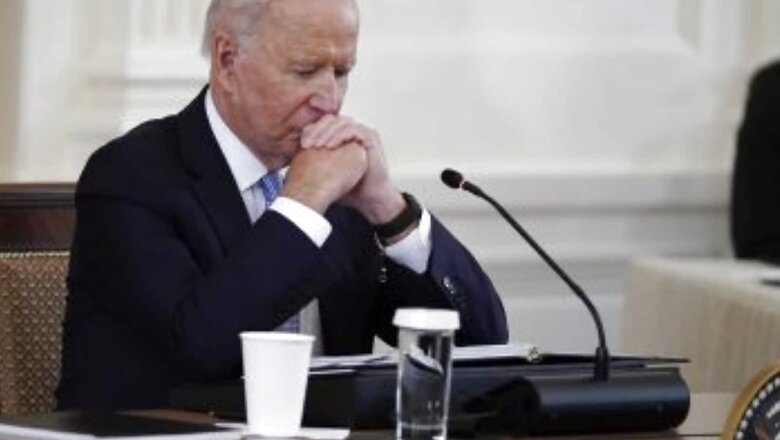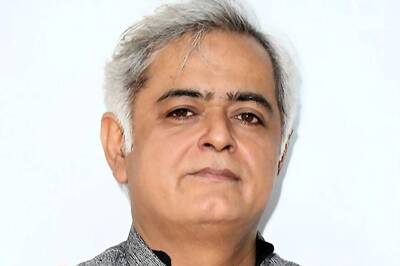
views
The Biden Administration has had a year to remember. From achieving genuine strategic breakthroughs in the form of the Quad Summit and the AUKUS nuclear submarine pact to the heart-wrenching disaster that was the US withdrawal from Afghanistan, Biden’s team has seen it all. Now, his Administration has chosen to end a year dominated by hard power realities and crises with an eye on America’s soft power appeal. In early December, world leaders and civil society representatives shall gather in Washington for Biden’s grand “Summit for Democracy”. Cloaked until now solely in rumour and innuendo, the Summit reveals much about the power and promise but also the limitations and lacunae in Biden’s foreign policy.
First, the good. Biden’s push to bring top global leaders and thinkers together in a highly visible summit in support of democracy can only be to the good. Democracy’s recent woes have been on display for all to see and some good PR can hardly hurt. Biden has made it clear that human rights and democratic values will sit at the heart of his foreign policy and few things will make this as clear as this summit has. However, even in a summit that ostensibly concerns itself with democratic renewal, America’s foreign policy calculus is clearly visible.
To begin with, the inclusion of a number of small island states like Tuvalu, Kiribati and the Marshall Islands is a smart strategy. While Beijing has embarked on a charm offensive in the region, traditional major powers in the region like the United States and Australia have been accused of diplomatically neglecting these Pacific island states. This has real foreign policy consequences as America discovered its cost in 2019 when Kiribati abandoned diplomatic recognition of Taiwan in favour of Beijing. Indeed, Kiribati has just concluded an agreement with China to upgrade capabilities on a former US military base in the island nation. As these small but crucial actors in the evolving powerplay in the Indo-Pacific lurch towards Beijing, Biden’s invitation should help to somewhat smooth over tensions and soothe bruised egos.
His Administration’s invitation to Taiwan, a vibrant and resilient democracy, raised eyebrows around the world and a firestorm in Beijing. While Xi and Biden have just come off a virtual summit where both sides attempted to arrest the free fall in Sino-US ties, Biden’s message to Xi is clear. The US, as the President puts it, is interested in “simple straightforward competition” with China. While Biden’s Administration hopes to avoid catastrophe and dangerous escalations in its relationship with China, it views Beijing as a competitor and will act as such. Biden’s invitation to Taiwan drives home the fact that the era in which Washington may have blunted human rights criticism and advocacy for democracy in its quest to build better ties with Beijing is over. For the remaining few who held out hope, the writing is on the wall: competition is now the order of the day.
No Clear Deliverables
However, America’s “Summit for Democracy” is not without its troubles. To put it bluntly, the invitation list is a mess. Poland, which has seen a troubling trend of democratic backsliding, scored an invite to the event while the largely democratic and free Bangladesh did not. Indeed this would still make more sense if the US made it clear that it was adopting a “big tent” approach by inviting even unfree and autocratic states. However, Hungary and Turkey, both largely electoral autocracies, are excluded from the event. Similarly, while Pakistan, Angola and Congo found themselves on the guest list, stable democracies and key regional players like Sri Lanka and Singapore were snubbed. That this motley crew will make for strange company at a summit ostensibly held to promote democracy and will ruffle the feathers of important regional partners is one problem. More damaging is the fact that many will see this as yet more evidence of scattershot and frankly sloppy strategic thinking on America’s part. After the debacle in Afghanistan, this is a tag the Biden Administration could do without.
Further, the goals and deliverables from the summit are also something of a mystery. America hopes to advance discussion on defending against authoritarianism, fighting corruption and protecting human rights. To that end, Washington hopes for each country invited to make a series of commitments on each of these broad policy areas to advance democratic values. The challenges here are obvious. As the recent climate negotiations have shown in stark detail, getting sovereign nations to make sweeping commitments and ensuring they deliver on the same are two vastly different things. Does anyone really believe that an Imran Khan will be converted into a paragon of liberal democratic values after meeting with the ‘prophets’ in Washington DC?
The malaise faced by democracy globally is deep and has its roots in a complex cocktail of economic deprivation, rising inequality and political polarization. Further, in the aftermath of the Trump Era and the Capitol Riots in January 2021, does the United States still possess the moral high ground that once came with being the most powerful functioning democracy in the world? While it is more than a little unfair to expect this summit to solve these problems, the Biden Administration will need to articulate a much clearer view of what it hopes to achieve through this summit. Indeed, without clear deliverables, this whole exercise risks being seen as little but pageantry and a waste of taxpayer money.
What’s in It for India
India is likely to have a somewhat awkward time at the summit. While undoubtedly a stable democracy that wishes to partner more closely with allies that share its values, India will have to battle a mounting Western perception that it has seen a marked decline in political, personal and press freedoms over the last few years. This is both a challenge and an opportunity. The Narendra Modi government will have to clearly and intelligently articulate its disagreements with Western assessments of the health of Indian democracy while still making common cause with democratic partners. For the Prime Minister, reversing some of the soft power losses India has taken in global capitals since the repeal of Article 370 will be the key payoff from this summit.
Indeed, the Summit for Democracy says much about the state of American foreign policy. The truth is that America’s democratic values and open society do hold genuine soft power appeal. Further, America remains capable of bringing together a robust range of players together for the common good. However, the Summit for Democracy’s vague goals and deliverables reflect the malaise afflicting American foreign policy thinking which is buffeted by the winds of change yet cannot seem to respond with a clear, comprehensive, action-oriented strategy. Resolving that challenge will take much more than speeches and summitry, however well-intentioned.
The author is a research associate, strategic studies programme, Observer Research Foundation (ORF). The views expressed in this article are those of the author and do not represent the stand of this publication.
Read all the Latest Opinions here




















Comments
0 comment